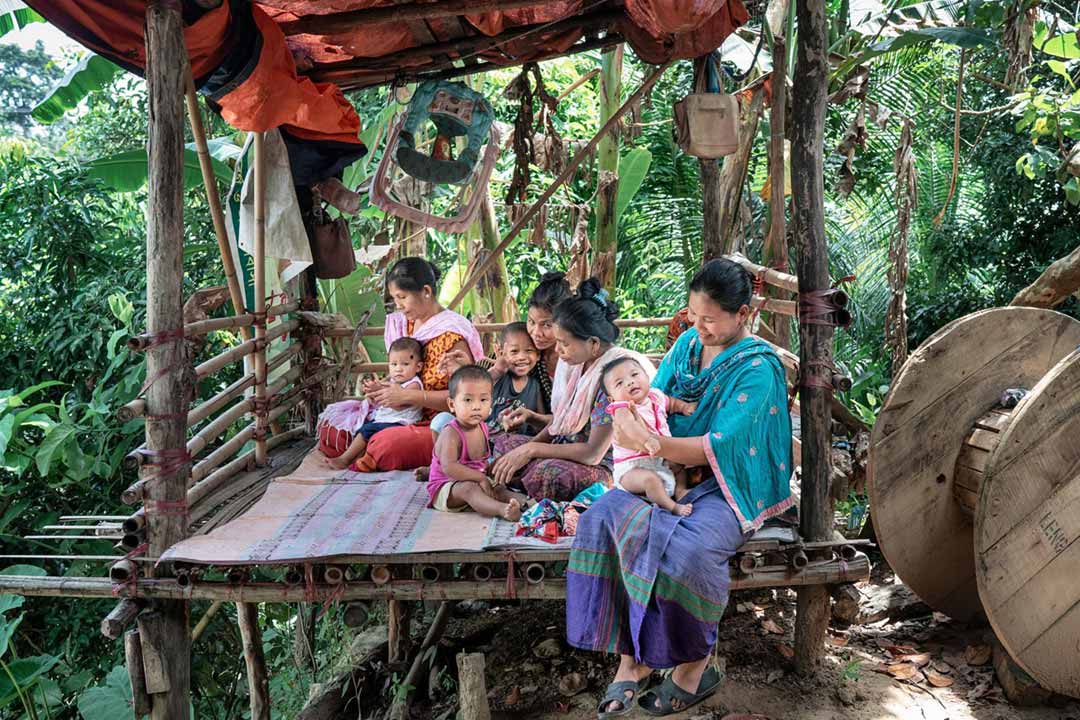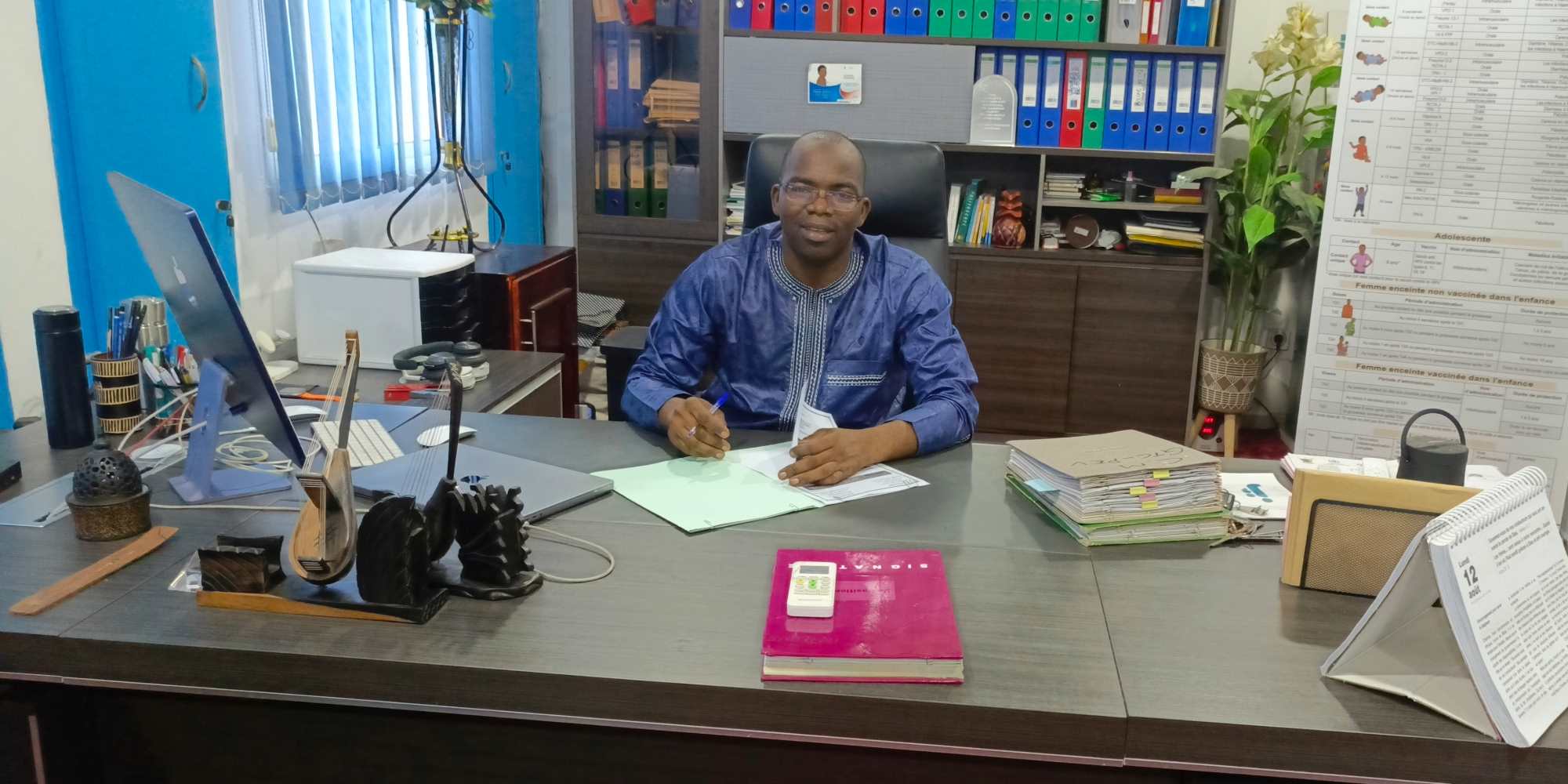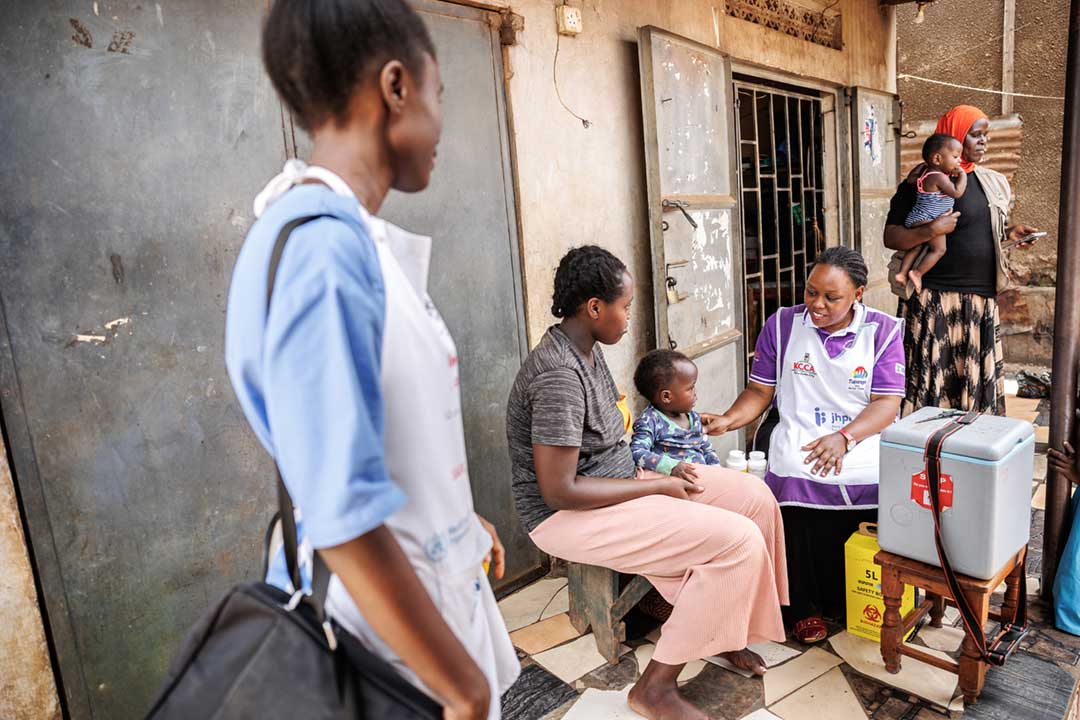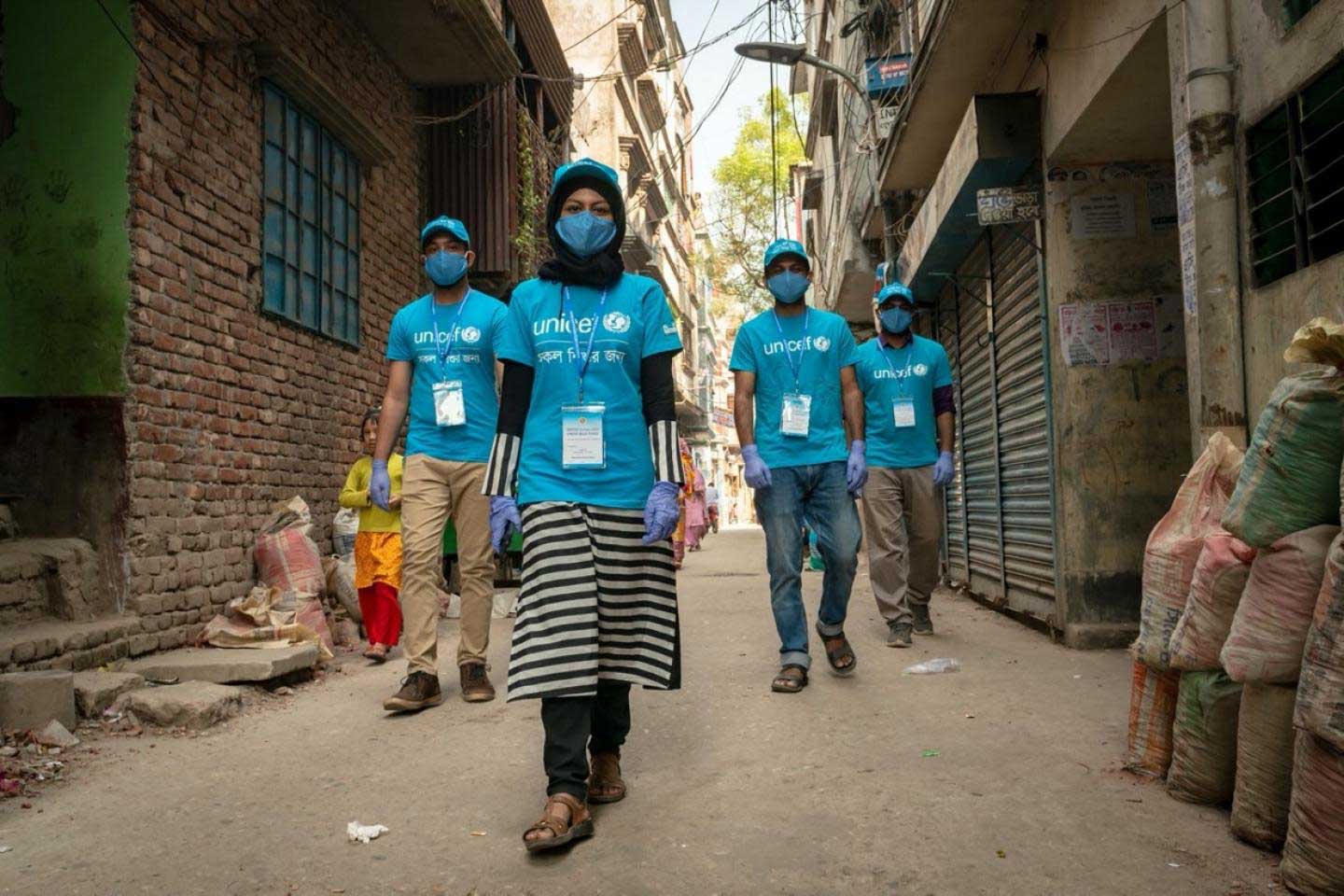Going mobile to reach Bangladesh’s zero-dose children
Helping farming families and factory workers get their children vaccinated.
- 20 April 2023
- 4 min read
- by UNICEF Bangladesh

Each morning, weather permitting, a team of health workers sets off from the Thanchi clinic in the Bandarban region of Bangladesh. Their goal is to reach children in remote villages, high up in the Chittagong Hill Tracts, to protect them against vaccine preventable diseases.
The journey starts early morning at the clinic. They carefully pack vaccine doses from temperature-controlled refrigerators into portable cold boxes. Around 7 a.m. the mobile team is ready to get a local taxi to the banks of the river Sangu.
Depending on where they are going, the choppy boat ride through the shallow Sangu may take anything from one hour up to four hours.
"Sit upright and don't lean," the boat driver shouts as he navigates rocky areas. Beyond the boat's motor and waves, birdsong is the predominant sound.

Credit: © UNICEF and CDC/UN0723048/Monir
The team divides up to cover a number of villages each. Health worker Ubahine treks up the hill to Manglongpara village.
"The hill tracts are sparsely populated, so I know almost everyone in my catchment area," says Ubahine. His first stop is the house of the community leader where he sets up a vaccination site and uses it a base from which to trek to other villages.
Overcoming geographical barriers to reach zero-dose children
Four-month-old Naiyu has not received a single vaccine dose. It means that he has missed four recommended vaccines, designed to protect against nine diseases, including tuberculosis, whooping cough, polio and measles.
"After my son was born, I tried to get him vaccinated, but there was nowhere to do it where we lived. We returned to our home village recently and this is the first vaccine session since we moved back," says Naiyu's mother.

Credit: UNICEF and CDC/UN0723039/Monir
Over the last 40 years, Bangladesh has made remarkable progress on immunization and child health, with the national immunization coverage at 84 per cent of children aged under one year.
However, children living in remote parts of the country are less likely to receive the vaccines they need for healthy lives. This is particularly true for parents who, like Naiyu's, cannot afford to travel to vaccination centers or those who cannot bring their children to immunization sessions during the workday. And when pockets of unvaccinated children exist, diseases can resurge.
A system to track missed doses
Ubahine's co-worker, Shaki, registers the births of babies born in the hills.
"We keep records, so we know which vaccines to give each child on which day. After each session I check the books and see who missed an appointment. If we can't reach the parents on the phone, we go to their homes. We repeat the process until the baby is fully immunized," Shaki explains.
Have you read?
"During the cultivating and harvesting seasons, families live on their farms even further up the hills. No matter how important health is to them, it is difficult for them to leave their farms. This leads to children missing immunization sessions."
This is why health workers have to make the long trip several times, revisiting the same areas to vaccinate every child.
Children bearing the burden of socio-economic inequities
It is not only families in rural areas that can be hard-to-reach. Parents in cities, such as those working long hours in factories or other low-paid jobs, also struggle to access health centers.
Health workers in Dhaka's Mohammadpur area are operating door-to-door catch up services, setting up satellite sites, and arranging clinic appointments to ensure that children from poor urban families have the same access to vital vaccinations and broader health services.
Fatema, a single mother of three, is a domestic worker. "I work in three households to put food on the table for my children. I don't have a day off," says Fatema. "I want to make time for things that are good for my children, but I can't afford to miss work."

Credit: UNICEF and CDC/UN0722984/Monir
In contrast to Thanchi village, Mohammadpur is densely populated residential area of the city, home to more than 350,000 people. Yet four-month-old Hadiyat, Fatema’s youngest child, is also a zero-dose child. Health workers visited Fatema’s home until they managed to catch her at home and arrange for her to go to the clinic at a convenient time. Like the zero-dose babies in the Chitagong Hill Tracts, Hadiyat is now up to date with his vaccines, thanks to door-to-door services. The Bangladesh immunization programme is a remarkable achievement: Less than one per cent of children aged under one year are zero-dose children. Yet in a populous country like Bangladesh, this still means that there are still 30,000 children under one year that have not received a single vaccination dose. UNICEF procures and delivers all childhood vaccines for Bangladesh. In 2022, UNICEF delivered 173 million childhood vaccine doses for a value of USD 80 million. These vaccines were funded by Gavi, the Vaccine Alliance, and the Government of Bangladesh.
Written by
Unicef Bangladesh
Website
This article was originally published by Unicef South Asia on 19 April 2023.
More from UNICEF Bangladesh
Recommended for you






